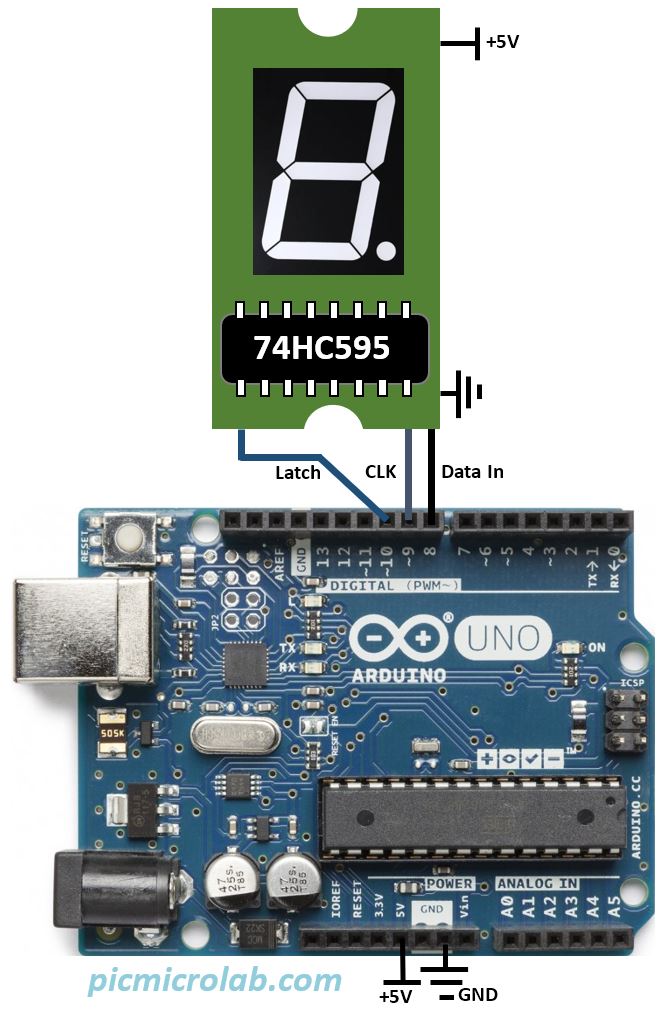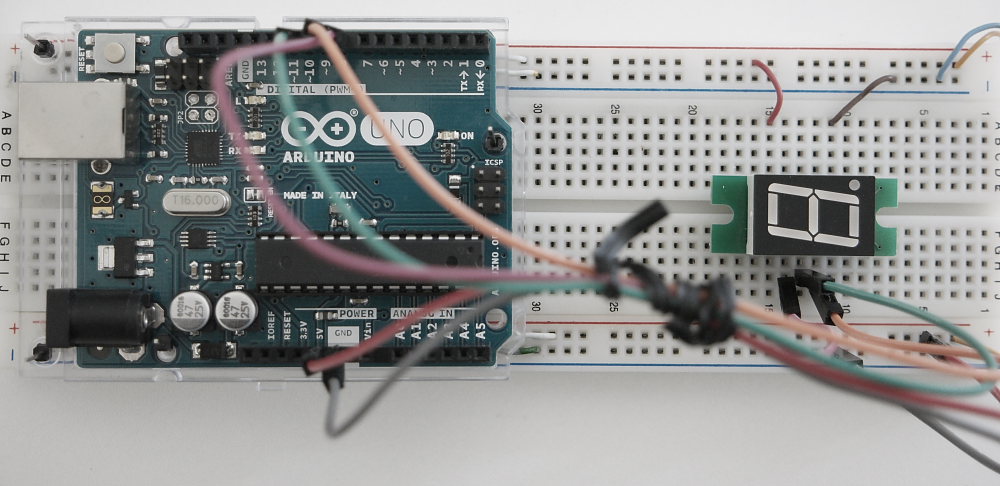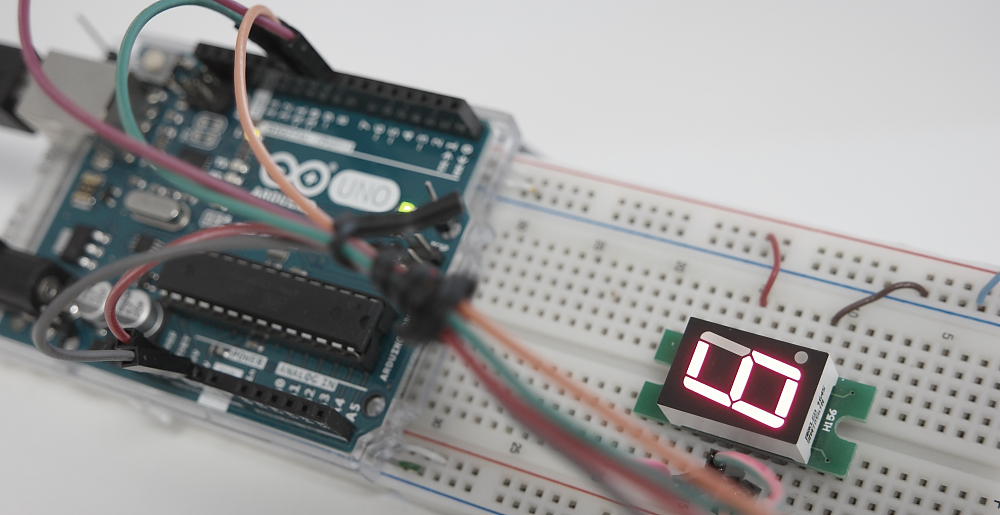74HC595 is a discrete shift register IC that can be easily integrated with Arduino platform. Usually shift registers are used to convert a serial data to a parallel output. Additional shift registers can be connected in series extending the number of available I/O’s even more. In this basic setup just one 7-Segment display module with embedded 74HC595 chip is used to demonstrate the circuit operation. Arduino board controls the shift register by driving 3 pin: serial data, clock and Latch to synchronize the bits being sent to 74HC595. Here is the design schematic and a picture of a prototype board I’ve used.

A number of standard Arduino functions like shiftOut() and digitalWrite() were used to interface with 74HC595. The code is relatively simple and does not require advanced programming skills. The only “complicated” task is to map out the LED segments to a shift register outputs. Once this information is available the correct pattern can be sent to generate decimal digits or other characters.

The attached Arduino sketch will cause the LED display to show a count from 0 to 9 in continues loop. The interval between the counts is 1 second and can be easily modified by changing a delay() function.
